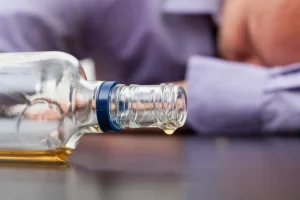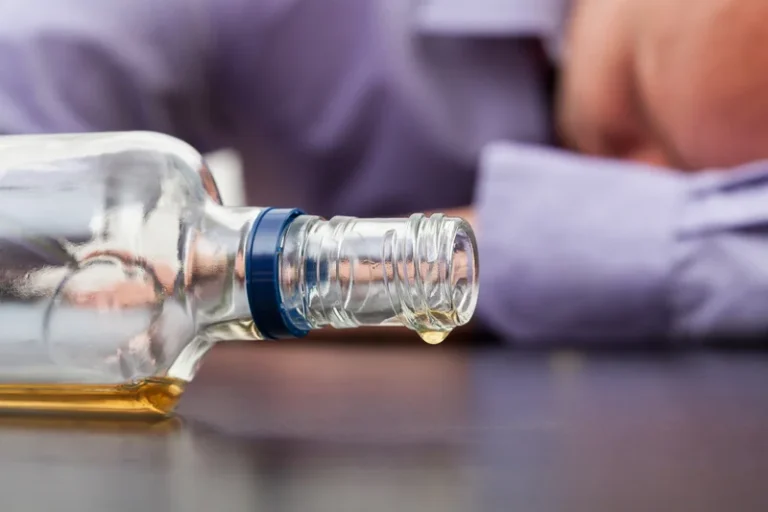
For the purpose of reducing risk of seizures and rebound withdrawal symptoms after discontinuation, long-acting drugs should be preferred to short-acting ones (41; 20). However, short-acting benzodiazepines may have advantages for patients with respiratory insufficiency. Symptom-triggered treatment has been reported to be as effective as fixed-dose or loading therapy, resulting in lower doses and shorter treatment time (58). Yet, treatment strategies and doses vary from center to center and consensus is lacking (46). The severity of the withdrawal symptoms depends on the agent alcohol withdrawal seizure type and use duration.

recognize the transition from alcohol withdrawal to Non-Alcohol-Related Delirium (NARD)

Drugs like benzodiazepines are often used to treat alcohol withdrawal, and they can also be used to taper you off alcohol. Alcohol withdrawal seizures typically aren’t deadly on their own, but they can lead to dangerous complications. If you’re in a standing position or around dangerous objects, a seizure can cause a potentially fatal accident or injury. Along with alcohol’s other effects on your heart, you could experience drug addiction dangerous heart-related symptoms, such as stroke or cardiac arrest.
- Alterations in GABA levels can disrupt brain activity and precipitate seizure events.
- They involve muscle stiffening (tonic phase) and twitching or jerking (clonic phase).
- Signs and symptoms of DTs include disorientation, confusion, agitation, hallucinations, fever, sweating, high blood pressure, and fast heart rate.
- The severe complicated alcohol withdrawal may present with hallucinations, seizures or delirium tremens.
- On average, we found that patients received a total of 16 units of alcohol during their treatment.
Risk for Individuals with Epilepsy
Alcohol withdrawal can last for five to 10 days, but alcohol cravings and compulsions to use may continue for a long time. Even if you are no longer dependent on alcohol, you may have a compulsion to drink that’s hard to control. The dangerous withdrawal symptoms that are more likely through kindling include seizures, heart problems, and death. If you’ve gone through alcohol or depressant withdrawal in the past, you should seek medical attention before quitting alcohol. Depressants like alcohol can cause your muscles to relax, but withdrawal can cause tremors, muscle tightness, and seizures.

clinical presentation
This higher risk of severe withdrawal symptoms can happen even if you’ve used different kinds of central nervous symptom depressants. For instance, if you’ve gone through benzodiazepine withdrawal, you may experience severe withdrawal when going through alcohol withdrawal and vice versa. The physical examination of a patient with the signs and symptoms of alcohol withdrawal may reveal hyperventilation, tachycardia, tremor, hypertension, and diaphoresis.
- As the parenteral form of clomethiazole is no longer available, its application is dependent on sufficient alertness and cooperation to enable peroral treatment.
- Case-control studies convincingly demonstrate the association of first seizures to alcohol use in a dose-dependent manner.
- Treatment typically involves reintroducing the substance in controlled amounts or using a similar drug to alleviate symptoms, allowing for a gradual taper.
- Increase is more in countries where use of alcohol is traditionally less on population level and methods of prevention, control or treatment are not easily available.
- Timely assessment and accurate treatment are vital to preventing disease progression.
- Symptom triggered regime is favoured over fixed tapering dose regime, although monitoring through scales is cumbersome.
Alcohol Withdrawal Seizures
Barbiturates are cross tolerance to alcohol and can ease withdrawal symptoms significantly. However, controlled studies have not provided sufficient data to demonstrate that these agents can prevent seizures or DT’s. The benzodiazepine equivalents for 5 mg diazepam are 25 mg chlordiazepoxide, https://ecosoberhouse.com/ 1 mg lorazepam and 15 mg oxazepam.
- Long-term alcohol consumption affects brain receptors, which undergo adaptive change in an attempt to maintain normal function.
- The only way to lower the risk of severe alcohol withdrawal seizures is to seek addiction treatment as soon as possible.
- According to these authors, patients with mild withdrawal symptoms (i.e., CIWA–Ar scores of 8 or less) and no increased risk for seizures can be managed without specific pharmacotherapy.
- The kinds of withdrawal symptoms you experience will depend on the substance you were dependent on.
- In addition, the presence of alcohol withdrawal seizures increases the probability of delirium tremens (28).
- Even if you are no longer dependent on alcohol, you may have a compulsion to drink that’s hard to control.
- The purpose of this blog Is to explain clearly about alcohol withdrawal as well as its connection with seizures.
- Alcohol withdrawal seizures are a serious and potentially life-threatening condition that requires immediate medical attention and professional care.
- You’re watching an episode of your favorite show, Stranger Things, when all of a sudden one of the characters falls to the ground, jerking and convulsing rapidly.
According to older research, alcohol consumption may have a causal relationship with seizures, and people who drink 200 g or more of alcohol daily may have up to a 20-fold increase in seizure risk. In some cases, excessive alcohol consumption may lead people to miss meals or medication, which can also make seizures more likely in people with epilepsy. Alcohol consumption or withdrawal may trigger seizures in those with epilepsy. Some experts link excessive alcohol consumption to the development of epilepsy.

Why Alcohol Withdrawal Seizures Are Dangerous
Doctors often warn people who have epilepsy to avoid alcohol or to only drink in moderation. Limit yourself to no more than 3 drinks at any given time and drink slowly. Binge drinking (consuming 4-5 drinks or more in a short period of time) is linked to a higher risk of alcohol-related seizures due to withdrawal effects after you stop drinking.